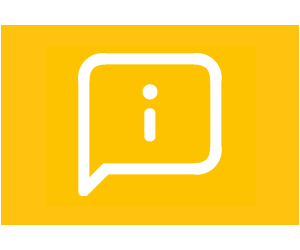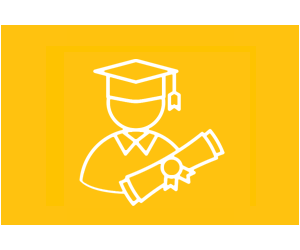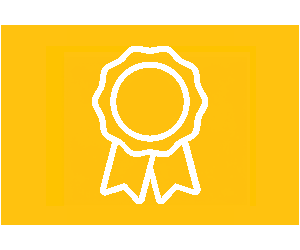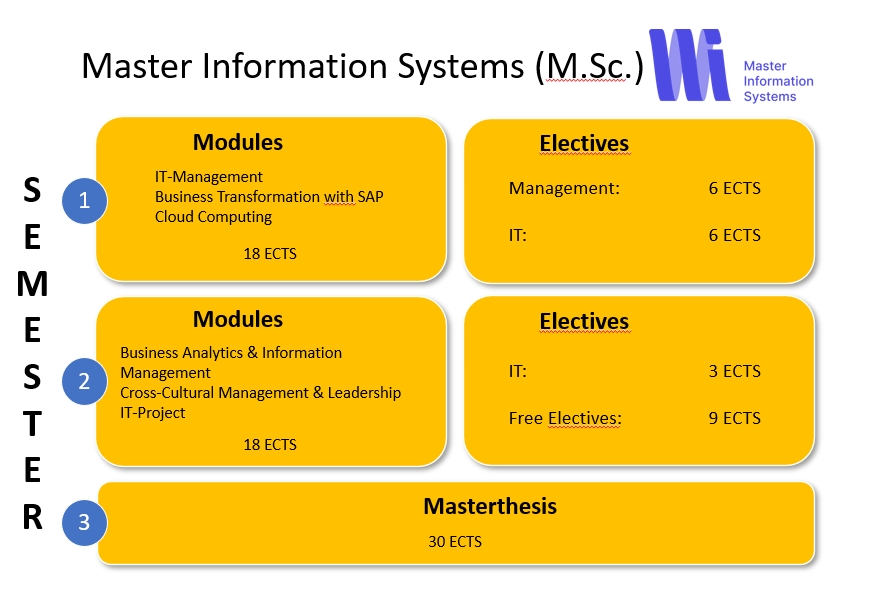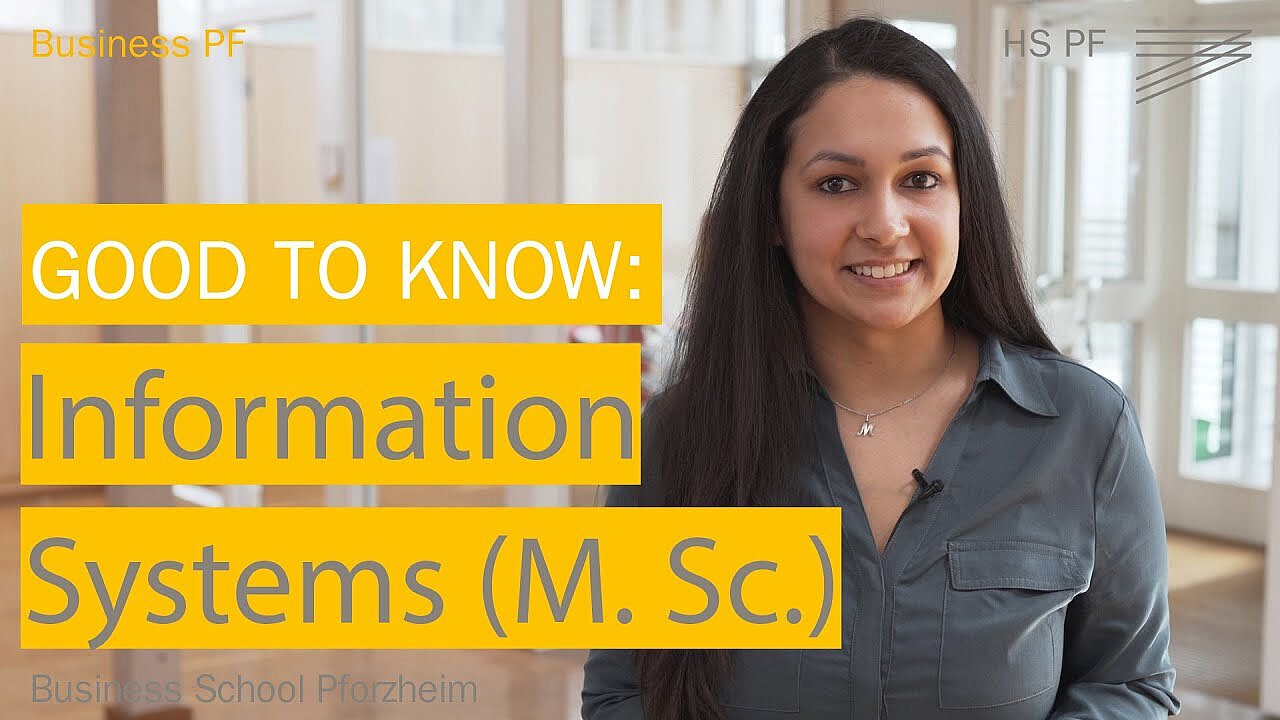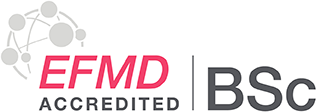Interdisciplinary Master's in Information Systems: Business Informatics studies with a focus on digital transformation at Pforzheim University
Unique interdisciplinary Master's degree in Information Systems (Business Informatics) with a holistic view of people, tasks and IT.
Since 2001, the MIS (Master of Science in Information Systems) at Pforzheim University has been successfully training talented young people for a professional future in business informatics. MIS graduates achieve a high level of employability, which is why the goal of our programme is a 100% placement rate, meaning we strive to ensure that all our graduates find a job immediately. This is our claim and makes us very proud of our graduates.
What you can expect:
- Innovative topics with a focus on digital transformation
- Interdisciplinary connections and a wide range of options in the fields of IT and management
- Nationally and internationally accredited teaching and the opportunity to earn a double degree
- International study experience can be gained, for example, as part of a voluntary semester abroad with a learning agreement – for example, at the IESEG School of Management (Lille or Paris campus) or the Institut Mines-Télécom Business School.
Special features:
- Wide range of options (individual profile development through elective subjects with a total volume of 24 ECTS from the fields of IT and management)
- The programme opens up and promotes a wide range of opportunities for international experience at international partner universities.
- Double degree programme between HSPF Business School and the University of Ljubljana, School of Economics (LU SEB)
- Doctorate possible afterwards
Typical career fields for our graduates are:
IT consultant, manager, agile coach, business analyst, product owner, project manager, software developer, SAP consultant, solution architect
The M.Sc. Information Systems (MIS) programme focuses on the innovative design of digital transformation and the development of strategies and solutions to master current and future challenges and changes for organisations, structures, systems and culture. The programme focuses on teaching the relevant skills and competencies that companies and organisations need to compete in digital markets in the future.
The M.Sc. Information Systems qualifies students to develop innovative digital solutions for future-oriented business models. Furthermore, the fundamentals of designing and implementing effective and efficient collaborative business processes are taught.
The bilingual, internationally accredited programme analyses the connections between business informatics, applied computer science and business administration.
The MIS programme addresses current topics, trends and the latest technologies from a business informatics perspective. Practical projects and final theses through an excellent network of company contacts, learning and working in small groups, individual support and close, personal contact with lecturers are what set the MIS programme apart.
Our MIS curriculum is continuously updated to meet the current and future requirements for a successful career in business informatics. New topics and areas of focus that are now being offered include:
- Generative AI (AI is the future and is driving digital transformation in companies)
- Business transformation with SAP (business information/application systems)
- Business analytics and process mining (business processes)
- Customer experience, digital service and user-centric solution design (customer interaction and processes at the heart of the strategy)
Please contact us for further information.
Key Facts
Degree
Master of Science
Programme start
Each winter semester
Maximum number of students
20 students
Program
Full-time study with 90 ECTS including thesis
Opportunity to participate in a double degree programme at the University of Ljubljana, School of Economics and Business
Opportunity for a voluntary semester abroad as part of a learning agreement
The person behind the matriculation number is important to us – together with you, we want to help you further develop your potential in the following areas:
• Critical, analytical and creative thinking as well as problem-solving skills
• Communication skills in a global context
• Teamwork and leadership skills
• Knowledge transfer skills
• Ethical awareness
Thanks to the large number of elective subjects, you have the opportunity to set your own individual study focus. We consider application-oriented work in small groups to be an important prerequisite for your successful studies. With 23 professors teaching compulsory and compulsory elective subjects, this results in a student-teacher ratio of 2.6. This allows for a wide range of personal discussions with all lecturers and the Dean of Studies.
Social skills
It is important to us that you enjoy working with your fellow students to develop IT solutions that are tailored to people and businesses.
Professional expertise
You have a first-class degree in economics or engineering.
Ideally, you have specialised in business informatics or applied computer science. However, we are always open to highly motivated career changers.
Language skills
Communicating in English will be part of your everyday working life in the future. We want you to be able to inspire others with your ideas in such situations. That is why we offer various English-language events where you can actively give presentations and write papers. We expect you to have a B2 level of English as a starting point.
The Program Goal
Responsible Leadership in Organizational Contexts
The Learning Objectives (and the assigned competence goals according to the German KMK Qualification)
After completion of the program the students will be able …
1.1 ... to know and to argue relevant leadership principles. (Knowledge Comprehension)
1.2 ... to demonstrate their ability to apply relevant leadership principles. (Application & Transfer)
1.3 ... to demonstrate their critical reflection of relevant leadership principles. (Academic Integrity & Professionalism)
1.4 ... to demonstrate competence to act responsibly. (Knowledge Deepening)
The Program Goal
Creative Problem Solving Skills in a Complex Business Environment
The Learning Objectives (and the assigned competence goals according to the German KMK Qualification)
After completion of the program the students will be able …
2.1 ... to identify, to demarcate, and to classify problems. (Knowledge & Understanding)
2.2 ... to analyze problems independently. (Knowledge & Understanding)
2.3 ... to solve problems creatively and implement appropriate solutions in practice. (Knowledge Application & Generation)
2.4 ... to clarify subject-specific problems. (Communication & Cooperation)
The Program Goal
Research Skills and their Practical Application
The Learning Objectives (and the assigned competence goals according to the German KMK Qualification)
After completion of the program the students will be able …
3.1 ... to know relevant methods and can argue them in a professional context. (Knowledge Application & Generation)
3.2 ... to competently apply relevant research methods. (Knowledge Application & Generation)
3.3 ... to demonstrate the ability to develop new knowledge and procedures, integrate knowledge from different areas to expand knowledge in the field. (Knowledge Application & Generation)
The Program Goal
Design Skills for specific IT Management Solutions or IT Technology Management Architectures within complex Process Structures
The Learning Objectives (and the assigned competence goals according to the German KMK Qualification)
After completion of the program the students will be able …
4.1 ... to demonstrate specialised IT-specific expert knowledge and expertise to design and realize specific solutions or architectures within complex structures. (Knowledge Deepening / Scientific Innovation)
4.2 ... to demonstrate their ability to apply appropriate specialised problem-solving methods to IT-specific tasks. (Application and Transfer)
4.3 ... to demonstrate their ability to identify causal problems for IT-specific tasks in complex process structures and to solve them aligned to professional standards. (Academic Integrity & Professionalism)
Contact
We would be pleased to advise you personally:
mis(at)hs-pforzheim(dot)de
Tel.: +49 7231 28-6095
Room: W2.2.25

If you would like a brief informational meeting about the Master's programme in Information Systems, we invite you to contact us via Teams or Zoom. You can choose whether you would like to speak with one of the available professors or a student.
You can book a direct meeting with Prof. Dr. Peter Weiß right here hier.
We look forward to hearing from you!
MIS-Alumnus Martin Geber im Interview
News
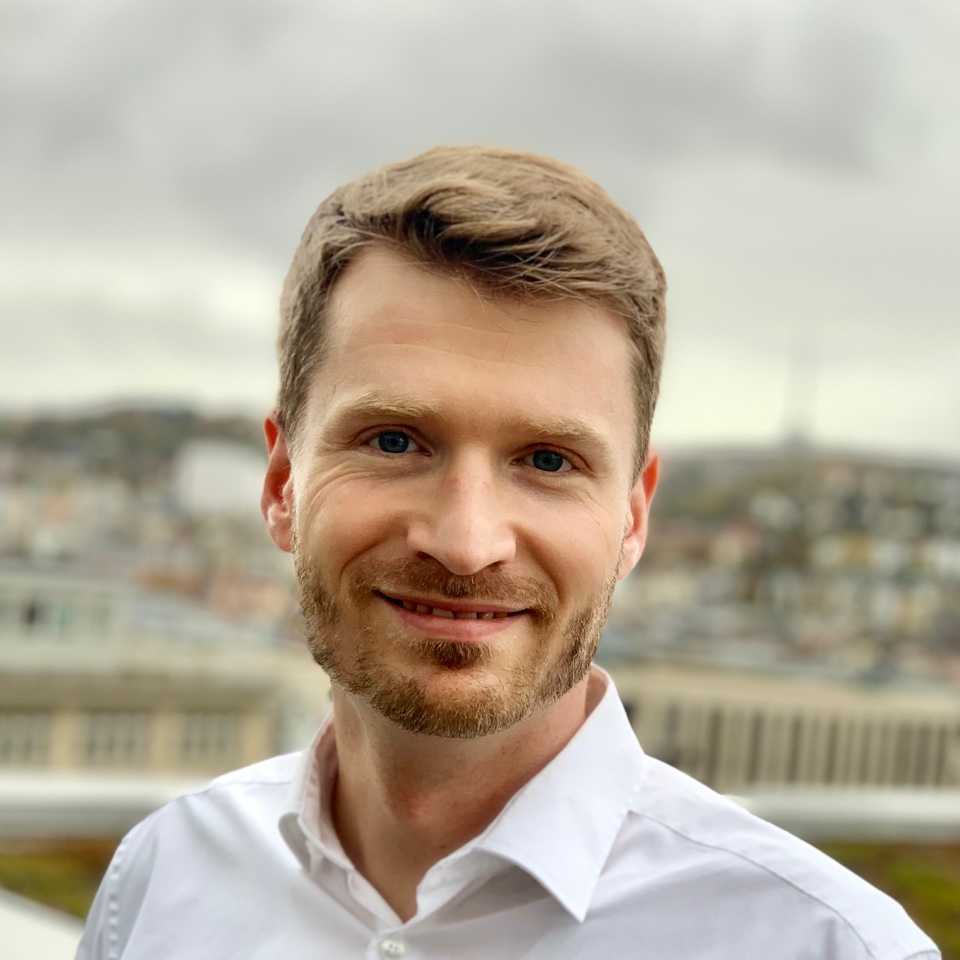
Martin Geber absolvierte von 2011 bis 2013 den Masterstudiengang Information Systems an der Hochschule Pforzheim. Im Anschluss daran entschied er sich für die Beratung. So startete er 2013 bei Accenture, wo er heute als Cloud Advisory Senior Manager tätig ist. Bei Accenture betreut er Kunden aus verschiedenen Branchen und arbeitet an den unterschiedlichsten Projekten: von Arbeitsplatzrollouts über Cloud Strategie Entwicklungen und IT-Infrastrukturanalysen bis hin zu Cloud Migrationen. Auch nach acht Jahren ist er gerne bei Accenture und dankbar für die tollen Kollegen und die abwechslungsreiche Arbeit, die ihm nach wie vor Spaß macht und es ihm ermöglicht, Neues zu lernen und sich weiterzuentwickeln.
Am besten gefiel mir damals an der Stadt Pforzheim…
… ganz klar, unser WG-Wohnzimmer, der Irish Pub. Ich habe in einer tollen 8er-WG in der Zähringerallee gewohnt. Wir waren an unzähligen Abenden dienstags beim Pub Quiz und noch häufiger mittwochs zur Karaoke.
Die drei wichtigsten Kompetenzen in meinem Arbeitsalltag sind…
Mein Fachwissen ist natürlich eine der wichtigsten Kompetenzen überhaupt. Dafür habe ich das Studium schließlich abgeschlossen. Aber neben dem Fachwissen zählen andere Kompetenzen, die man schulisch nur eingeschränkt erlernen kann, denn sie erfordern Zeit und gute Mentoren. Das Gespür, zur richtigen Zeit das Richtige zu sagen, Argumentationsketten aufbauen und sich auf Gesprächspartner einstellen zu können, ist bei mir in der IT-Beratung mindestens genauso wichtig.
Meine besten Einfälle habe ich…
… im „stillen Kämmerlein“, am besten mit Abstand zur Situation. Es war für mich eine wichtige Erkenntnis, dass wir sehr unterschiedlich arbeiten. Während meine Kollegen gern gemeinschaftliche Brainstorming-Sessions hielten, habe ich mich lieber allein mit dem Thema befasst. Mit den Accenture Schulungen erhielt ich dafür eine Erklärung: trotz meines eher extrovertierten Auftretens arbeite ich, wenn es um die Lösungsfindung geht, introvertiert. Meine Ideen diskutiere ich dann gern, aber ich muss meine Gedanken zunächst für mich sortieren.
Mein Tipp für Studierende:
Auf der Suche nach dem ersten Arbeitgeber sollte man mehr Parameter berücksichtigen als das Jahresgehalt. Wie sieht es bspw. mit Gehaltssteigerungen aus, welche Gehaltsstrukturen herrschen in der Branche, wie sind die Arbeitszeiten, wie wird mit Überstunden umgegangen und für wen werde ich arbeiten? Im Idealfall sucht man sich nicht einen neuen Job, sondern einen neuen Chef. Einen der euch fordert und fördert. Dann kommt der Rest von ganz allein.


